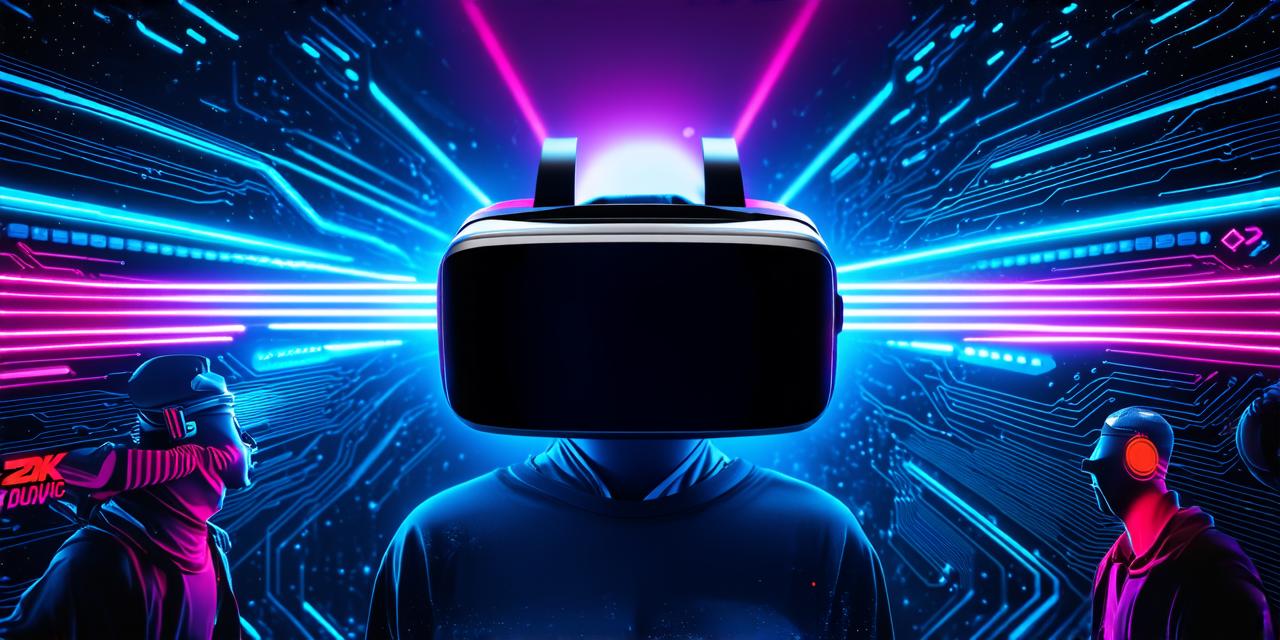The Importance of SEO in Marketing Virtual Reality
Search engine optimization (SEO) is the process of optimizing your website to rank higher in search engines. This is crucial for VR developers as it can help increase their visibility and attract more traffic to their website. SEO involves various tactics, including keyword research, on-page optimization, link building, and content creation.
Keyword Research
Keyword research involves identifying relevant keywords that people use when searching for VR products or services. These keywords can include words like “virtual reality,” “VR headset,” “VR development,” and “VR applications.” Once you have identified these keywords, you can optimize your website’s content to include them strategically.
On-Page Optimization
On-page optimization involves ensuring that your website is easy for search engines to crawl and understand. This includes optimizing images, videos, and other media content with relevant keywords, using descriptive file names and alt tags, and optimizing URLs.
Link Building
Link building involves acquiring high-quality backlinks from reputable websites in your industry. These links can help increase your website’s authority and improve its search engine rankings. You can achieve this by creating shareable content, reaching out to relevant websites and blogs for guest posts or collaborations, and participating in online communities related to VR development.
Content Creation
Content creation involves creating valuable and engaging content that targets your target audience. This can include blog posts, videos, tutorials, and case studies. Your content should be optimized for search engines by including relevant keywords, using descriptive headings and subheadings, and including internal and external links.
Social Media Marketing for Virtual Reality Developers
Social media is a powerful tool for VR developers to reach their target audience. Platforms like Facebook, Twitter, Instagram, and LinkedIn offer various features that can help you engage with your followers and promote your products or services.
Creating Engaging Content
One way to leverage social media is by creating engaging content that showcases your VR product or service. This can include images, videos, and 360-degree photos that give your followers an immersive experience. You can also use social media advertising to target specific audiences based on demographics, interests, and behaviors.
Content Marketing for Virtual Reality Developers
Content marketing is a strategy that involves creating valuable and engaging content that targets your target audience. This can include blog posts, videos, tutorials, and case studies. Your content should be optimized for search engines by including relevant keywords, using descriptive headings and subheadings, and including internal and external links.
Creating a Blog
One way to leverage content marketing is by creating a blog that provides valuable information and insights related to VR development. This can include tutorials on how to create VR applications, case studies of successful VR projects, and industry news and trends.
Influencer Marketing for Virtual Reality Developers
Influencer marketing involves partnering with influential individuals in your industry to promote your product or service. These influencers have a large following on social media platforms like Instagram, YouTube, and Twitter and can help you reach new audiences and build credibility.
Reaching Out to Influencers
To leverage influencer marketing, you can reach out to influencers in your industry and offer them free access to your VR product or service in exchange for a review or feature. You can also partner with influencers on sponsored content campaigns where they promote your product or service to their followers.
Case Studies of Successful Virtual Reality Marketing Strategies
One example of successful virtual reality marketing is the launch of Oculus Quest 2. Oculus used various marketing strategies to promote the product, including SEO, social media advertising, content marketing, and influencer marketing.
Referral Program
Oculus also launched a referral program that offered discounts on Quest 2 to people who referred friends to buy the product. This helped generate buzz and excitement around the product and encouraged people to share their experiences with Quest 2 on social media.
Conclusion
Virtual reality is a rapidly growing technology that offers unique opportunities for developers to create groundbreaking applications. However, marketing virtual reality can be challenging. In this guide, we have discussed various strategies for marketing virtual reality, including SEO, social media marketing, content marketing, and influencer marketing. By using these strategies effectively, VR developers can increase their visibility and attract more traffic to their website, reach new audiences, and build credibility in their industry.
FAQs
Here are the FAQs section of the article.
1. How do I optimize my website for search engines?
You can optimize your website for search engines by using relevant keywords strategically, optimizing images and videos with relevant keywords, and acquiring high-quality backlinks from reputable websites in your industry.
2. What social media platforms are best for virtual reality developers?
Platforms like Facebook, Twitter, Instagram, and LinkedIn offer various features that can help VR developers engage with their followers and promote their products or services.
3. How do I leverage content marketing for virtual reality development?
You can leverage content marketing by creating valuable and engaging content such as blog posts, videos, tutorials, and case studies. Your content should be optimized for search engines by including relevant keywords, using descriptive headings and subheadings, and including internal and external links.
4. How do I find influencers to partner with in my industry?
You can find influencers to partner with by searching for individuals on social media platforms like Instagram, YouTube, and Twitter who have a large following related to your industry. You can also use tools like InfluencerHub or HypeAuditor to find and contact influencers.
5. How do I measure the success of my virtual reality marketing efforts?
You can measure the success of your virtual reality marketing efforts by tracking metrics such as website traffic, social media engagement, and sales. You can also use tools like Google Analytics to track your website’s performance and identify areas for improvement.
